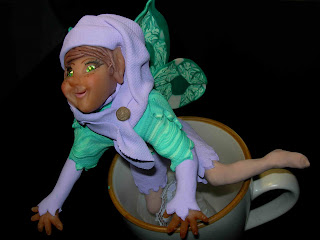Recently I attended an event where the keynote speech was given by
Sister Clare Fitzgerald .
This is my attempt to recap some of what I learned; she was clearly a wealth of knowledge, feisty and all of those other cliches that are used for "old" people who don't act old, but hold on to their vitality, their energy, their joy. She was alternately charming (singing, in a Bob Hope- era style) and "a pisser", as my friend put it. If you make this woman mad, you're going to hell on a bicycle. She said so herself.
I found the history fascinating, given that I knew none of it. I was Lutheran as a child. I am that rare bird who converted to BECOME Catholic.
Catholic education finds its century-old roots in parish schools, charged with educating immigrant children; Catholics attempted to establish a school system that would provide a general education of the kind offered in the public schools, while emphasizing religious training. The Baltimore Catechism is a slim booklet which bears no resemblance to the weighty catechism of "today". Oh, and free labor - the religious community staffed these parish schools, of course.
One major challenge facing the Catholic church in America prior to 1940 was political; Catholics were sometimes viewed as almost “anti-American", because of the political power of the Vatican and the Pope.
During the great wars, the Catholics fought for their country and slowly earned the respect of a Protestant nation. From WWII until the mid-1960s, American culture began to "reflect Catholicism” in Bing Crosby movies like Going My Way, Bishop Fulton Sheen’s television show, and the election of John Kennedy.
Catholics began to demand a higher quality education. At the peak of the 60's, there were some six million students in Catholic schools. These students climbed the cultural ladder to become doctors, lawyers, CEO's... attaing positions far beyond the "menial" jobs of their immigrant grandparents.
Today families have fewer children, due to contraception advances. (I'll leave the discussion of Catholics using contraceptives for someone else... I know one family with TEN elementary school-aged children. I am hard pressed to think of any others that I know with more than five. The big families that I *DO* know are filled with joy, but I can't imagine walking that path myself.)
The system as a whole ultilizes fewer religious faculty members today(they now represent only about 5% of the overall staff...) and tuition is a substantial cost compared to a generation ago. I spend more per month to educate my children than to drive a car.
And, of course, schools are closing. But not all Catholic schools. There are aproximately 2.8 million Catholic students today, compared with that 6 million figure of some fourty years ago.
Children are shaped by four major factors - family, school, church, and culture. What do children gain by a Catholic school? A culture of faith. For my children, church isn't a boring hour on Sunday. It's where they spend a good deal of their waking hours, where all of their friends are. The children are prepared to receive the sacraments of our faith. They pray together. They work together to learn and live our religious beliefs. Day in and day out, they are exposed to our holidays, the stories of our church ancestors, the vast mysteries that our faith holds. The uniform they wear signifies that they are a part of something.
The challenge today is to keep going. To find a way to pay the bills and keep the doors open and keep the process going. A modern day "loaves and fishes" problem, if you will. That was the remainder of her message - not to give up.
All in all I found her to be a very captivating speaker. At times shouting, then whispering, she held the attention of 150 people in the room for nearly two hours. And, well, I was in the third row, center, right in her line of sight and I didn't DARE doze off. Hell on a bicycle, you know.
































